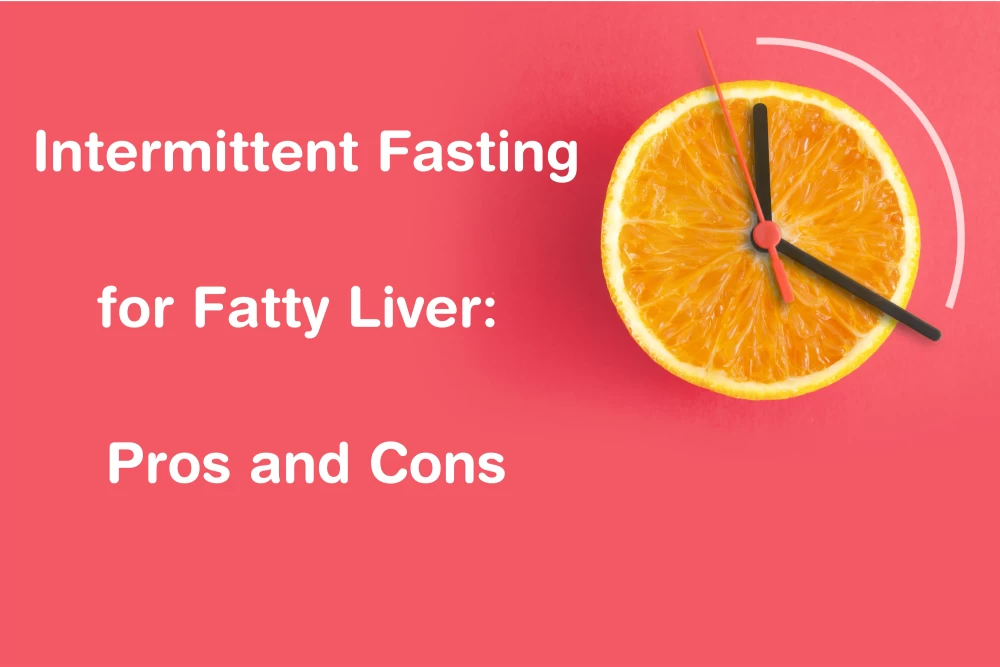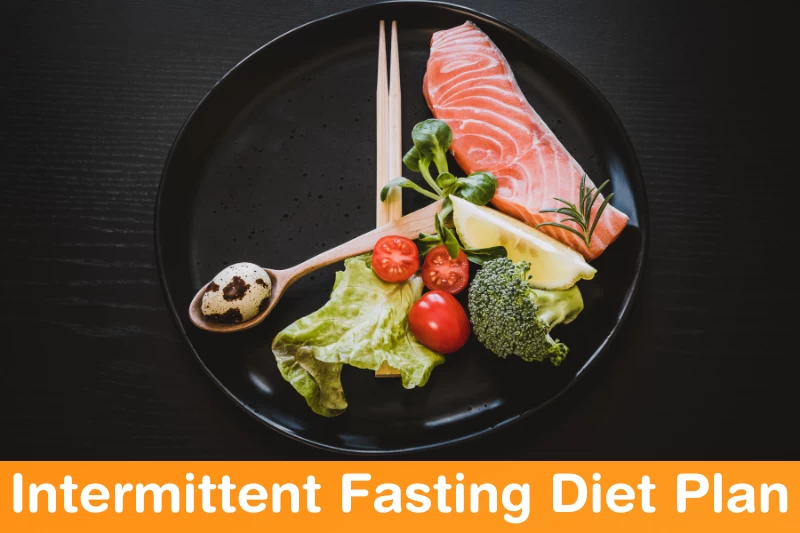
- 20th March 2023
Table of Contents
What is Intermittent Fasting?
Intermittent fasting is a popular dieting technique that involves alternating periods of eating and fasting. The goal is to restrict the amount of calories consumed during certain times of the day, week or month. This can be done in many ways, such as following a 16:8 pattern (fasting for 16 hours and eating within an 8-hour window) or doing intermittent fasting for entire days. One potential benefit of intermittent fasting is weight loss, which may be particularly helpful for people with fatty liver disease. However, it's important to note that this technique isn't suitable for everyone. For example, pregnant women should not fast and people with diabetes should consult their doctor before trying intermittent fasting. Additionally, some studies have suggested that prolonged periods without food could lead to muscle breakdown and decreased metabolic rate. It's important to approach this diet method with caution and seek advice from a medical professional if necessary. Overall, while there are potential benefits to intermittent fasting as a tool for weight loss and overall health improvement in individuals who are healthy enough to do so safely; however, experts emphasize the importance of individualization when it comes to any dietary changes or restrictions due to underlying medical conditions or medications being taken.
Pros of Intermittent Fasting for Fatty Liver
Intermittent fasting (IF) has gained popularity in recent years for its potential health benefits. One of the most notable benefits is its ability to improve fatty liver disease. Fatty liver is a condition where excessive fat accumulates in the liver, leading to inflammation and damage over time. Studies have shown that IF can reduce fat accumulation in the liver and improve overall liver function. Another benefit of IF for fatty liver is its ability to reduce insulin resistance. Insulin resistance occurs when cells become less responsive to insulin, leading to elevated levels of glucose in the blood. This can contribute to the development and progression of fatty liver disease. IF has been shown to improve insulin sensitivity, which can lower blood glucose levels and reduce the risk of developing fatty liver. Lastly, IF may also have anti-inflammatory effects that can be beneficial for those with fatty liver disease. Chronic inflammation is a common feature of many chronic diseases, including fatty liver. Studies have shown that IF can decrease markers of inflammation and oxidative stress in the body, which may help prevent further damage to the liver and improve overall health outcomes for those with this condition.
Cons of Intermittent Fasting for Fatty Liver
While intermittent fasting has been touted for its potential benefits in managing fatty liver disease, there are also several cons to consider. Firstly, fasting can lead to increased stress on the body and potentially exacerbate existing health conditions. This is particularly true in cases where individuals have underlying medical conditions such as diabetes or hypertension. Another potential drawback of intermittent fasting for fatty liver disease is that it can result in decreased energy levels and productivity during the fasting periods. This can be especially challenging for those who work demanding jobs or have other daily responsibilities that require sustained focus and attention. Lastly, it's important to note that intermittent fasting may not be suitable for everyone with fatty liver disease. Individuals undergoing treatment or medication regimes should consult their healthcare provider before attempting a fast as it may interact with their current medical plan, causing complications or side effects.
Other Benefits of Intermittent Fasting

Intermittent fasting is not just beneficial for weight loss and improved metabolism, but it also has a positive impact on the liver. Fatty liver disease is becoming increasingly common due to obesity and unhealthy eating habits. Studies suggest that intermittent fasting can help prevent or even reverse fatty liver by reducing insulin resistance and inflammation. Moreover, intermittent fasting can improve brain function by increasing the production of brain-derived neurotrophic factor (BDNF). This protein promotes the growth of new brain cells and protects existing ones from damage. Research shows that impaired BDNF signaling is associated with neurological disorders such as Alzheimer's disease and depression. Lastly, intermittent fasting may also promote longevity by activating autophagy - a natural cellular process that removes damaged cells and proteins from the body. Autophagy plays a crucial role in preventing age-related diseases and improving overall health.
Research and Studies
Intermittent fasting (IF) has become an increasingly popular diet trend in recent years. While some studies have shown that IF can be beneficial for weight loss and improved metabolic health, it is unclear whether these benefits extend to individuals with fatty liver disease. A recent study found that IF may actually worsen liver function in individuals with non-alcoholic fatty liver disease (NAFLD). However, other studies suggest that certain forms of IF, such as time-restricted feeding (TRF), may still offer benefits for those with NAFLD. TRF involves restricting food intake to a specific window of time each day, typically 8-10 hours. One study found that TRF was associated with improved insulin sensitivity and reduced liver fat in individuals with NAFLD. Overall, more research is needed to determine the effectiveness of IF for treating fatty liver disease. It is important for individuals with NAFLD to consult with their healthcare provider before attempting any form of fasting or dietary modification.
Tips for Starting Intermittent Fasting
1. Start slow and gradually increase fasting time: Don't jump right into a 16-hour fast on your first day of intermittent fasting. Instead, begin with shorter periods of fasting, such as a 12-hour fast, and gradually increase the duration over several weeks.
2. Choose the best time to start your fast: It's important to choose a time that works for you and your lifestyle. For example, if you're not a morning person, consider starting your fast after breakfast instead of skipping it altogether.
3. Stay hydrated during your fast: Drinking water is crucial during intermittent fasting to avoid dehydration and keep hunger at bay. Try adding some lemon or cucumber slices to enhance the flavor.
4. Plan healthy meals for when you break your fast: Breaking your fast with unhealthy foods can undo all the benefits of intermittent fasting. Instead, plan nutrient-rich meals that include lean protein, vegetables, fruits, and whole grains.
5. Listen to your body: If you experience any discomfort or unusual symptoms while intermittent fasting, stop immediately and consult with a healthcare professional before continuing.
In summary, starting an intermittent fasting routine requires patience and planning but can potentially have significant benefits for those suffering from fatty liver disease when done correctly under medical supervision.
Conclusion: Is Intermittent Fasting Right For You?
In conclusion, deciding if intermittent fasting is right for you depends on your individual goals and lifestyle. If you are looking to improve your overall health, lose weight, or manage chronic conditions such as fatty liver disease, intermittent fasting may be a viable option. However, it is important to consult with your healthcare provider before starting any new diet or exercise regimen. While there are potential benefits to intermittent fasting, such as improved insulin sensitivity and reduced inflammation in the body, it is not suitable for everyone. Those with a history of disordered eating or certain medical conditions may need to avoid this type of diet. Additionally, individuals who have trouble sticking to strict eating schedules may find it challenging to incorporate intermittent fasting into their daily routine. Ultimately, the decision to try intermittent fasting should be based on careful consideration of personal goals and an honest evaluation of whether this approach aligns with one’s lifestyle and preferences. With proper guidance from a healthcare professional and attention paid to individual needs and limitations, intermittent fasting can be a safe and effective way to achieve desired health outcomes.














